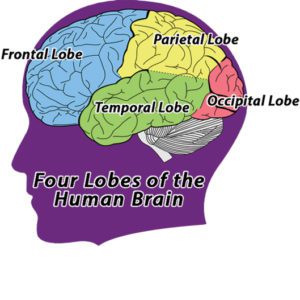By – Valeriy Sabodash, M.D.
 Dementia is a common clinical diagnosis in neurology practice. There are many types of dementia. The most discussed type is Alzheimer’s disease in the past known as senile dementia. However, there are other neurodegenerative syndromes that less known not only to the patients and their families but physicians too. Some of these, in fact, are not uncommon conditions and should hold social awareness to be recognizable and diagnosed in a proper time manner.
Dementia is a common clinical diagnosis in neurology practice. There are many types of dementia. The most discussed type is Alzheimer’s disease in the past known as senile dementia. However, there are other neurodegenerative syndromes that less known not only to the patients and their families but physicians too. Some of these, in fact, are not uncommon conditions and should hold social awareness to be recognizable and diagnosed in a proper time manner.
Frontotemporal Dementia or Frontotemporal Lobar Degeneration in abbreviation known as FTD is one of these illnesses we are going to discuss. It is known to us since 1892 when a professor of psychiatry from Charles University in Prague Arnold Pick first discovered and described the disease. Since then the name Pick’s Disease was used until lately. With time more syndromes which have the same histologic pathology and share similar clinical symptoms were discovered and the term FTD became predominant in use these days.
Frontotemporal dementia is a disease of the Social Brain. The striking feature of the disease is acquired asocial but not antisocial behavior and personality changes. Memory is not routinely affected. Patients with this disease develop behaviors, habits, and tendencies which previously they had not had. They progressively become inappropriate in their comments and acts, lack insight, tact and empathy towards others, lose interests in daily chores, develop poor decision making and judgment, tendency to eat sweets, and compulsive behaviors. For example, one of my patients started compulsively drawing pictures for straight 18 hours a day which was a brand-new habit for her. Hyperorality or tendency to put objects into a mouth, and hyperphagia, tendency to eat a lot, can lead to developing the state when a person eats everything reachable including not eatable objects. Majority of the patients with FTD have problems with hygiene and personal care. Despite recommendations, some of the patients continue risky driving.
Some patients do not see a problem in making comments on somebody’s appearance and often cannot suppress impulses of sexual character. Overly “friendly” patients with FTD are often easy to start a conversation with strangers on the street sometimes being very successful in seeking intimacy. Poor judgment makes people enormously spend money, ignore social boundaries, cultural traditions, advises and opinions of others. As Albert Camus’s personage in The Stranger said: “Mother died today. Or maybe yesterday; I can’t be sure”, – patients with FTD are losing their sympathy to all human and the humanism in general. “This is a person we did not know before” – is a usual complaint when families are describing the symptoms of a patient with FTD.
Aggression is not the common symptom of FTD. However, if present it is reactive to stimulus in opposition to premeditated or proactive aggression which required preservation of working memory and executive function. In FTD these are the most affected functions. Anxiety is frequently reported, when flat affect and apathy misread as depression. Abulia or lack of
motivation is very often to see in patients with FTD. Of note, these are probably the most common presentation of this disease.
Some patients may develop a syndrome of environmental dependency also called Zelig syndrome from the name of the protagonist of Woody Allen’s Zelig. A syndrome where the affected individual relies on environmental cues to accomplish goals or tasks. For example, a person suffering from this syndrome sitting in a doctor’s chair may treat a doctor as his patient. False beliefs, fantastic thinking, or vividly experienced imagination, frequently mixed with hallucinosis are reported in a patient with FTD.
There are three clinical forms of frontotemporal dementia: a behavioral variant, semantic dementia, and progressive non-fluent aphasia. Some of these have a strong genetic predisposition. In many features, these forms overlap clinically, but last two predominantly affect language rather than behavior. Treatments at present have limited efficacy in all three variants, and at best of mostly supportive character.
If you or someone you know has MS or MS-related symptoms, please call their office at
(941) 487-2160
Negroski Neurology MS Center of Sarasota
5741 Bee Ridge Road, Suite 530
Sarasota, FL 34233
Located in the Sarasota Medical Centre next to Doctors Hospital of Sarasota (Corner of Bee Ridge Road and Cattlemen off of Maxfield Drive)









